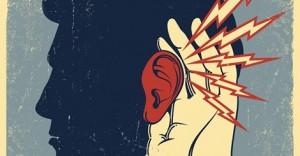It’s Not What You Said – It’s How You Said It
 I’ve learned that people will forget what you said, people will forget what you did, but people will never forget how you made them feel.
I’ve learned that people will forget what you said, people will forget what you did, but people will never forget how you made them feel.
– Maya Angelou
Have you ever been on a call and heard the other person shuffling papers or talking to someone in the background?
How’d that make you feel?
It can be pretty disconcerting when the other person seems disinterested. Maybe they’re involved with some pressing matter, but it could be that you just sound dull.
If the other person doesn’t want to hear about your widgets, that’s one thing, but if you’re not engaging them because your tone says those widgets don’t mean a thing to you, it’s probably time to quit for the day.
When you sound too dull, droning on in a disinterested way, people tune out in boredom. And coming across like an excited TV game show host just sounds insincere, and makes listeners want to turn a deaf ear as well.
Unless you’re on a Skype call and people can see you, your impact is going to come from what you say and how you say it. Besides keeping listeners engaged, tone and inflection convey a great deal about meaning. Without them, it can be hard to know what’s actually being said.
Suppose a friend, another insurance producer, tells you,
“That was the best sales appointment I’ve had all year.”
What do you think she’s really saying?
Those 10 words could mean very different things, depending on which words are emphasized.
“That was the best sales appointment I’ve had all year.”
By stressing the phrase the best, the speaker is clearly excited about that one particular opportunity.
But if the emphasis were on a different part of the sentence instead, the meaning would be quite different:
“That was the best sales appointment I’ve had all year.”
Now it sounds like the speaker is complaining that most of this year’s appointments have been lousy — if that was the best one.
See what I mean?
And if she emphasized the word I’ve instead, she’d clearly be comparing her results to someone else’s.
Without emphasis to convey meaning, words are just sounds. When the person speaking pays attention to inflection and emphasis, she’s breathing life into what she’s communicating, capturing her listener’s attention and keeping them engaged.
I think a lot of people have trouble with understanding social cues and body language. As you’ve stated, it can indicate how the exchange is going or what the outcome of the interaction between the people might be. It can be as simple as noticing that someone has stopped making eye contact or leaning their body away from you to show that they stopped paying attention to what you’re saying. On the other hand, I think that voice interactions, opposed to face-to-face interactions, like phone calls can be much harder to figure out. I think that momentary distractions or a nitch in their speech patterns don’t necessarily mean that they’ve lost interest. I think that those can be entirely understandable, I think that the only way you could tell disinterest is by the amount of reciprocated communication and by direct diction.
Agreed, Monica, it
is
harder to ‘read’ others without the benefit of visual cues. And when we’re not sure where they’re coming from then it’s important to ask and clarify so we’re not just presupposing and attributing the wrong intentions.